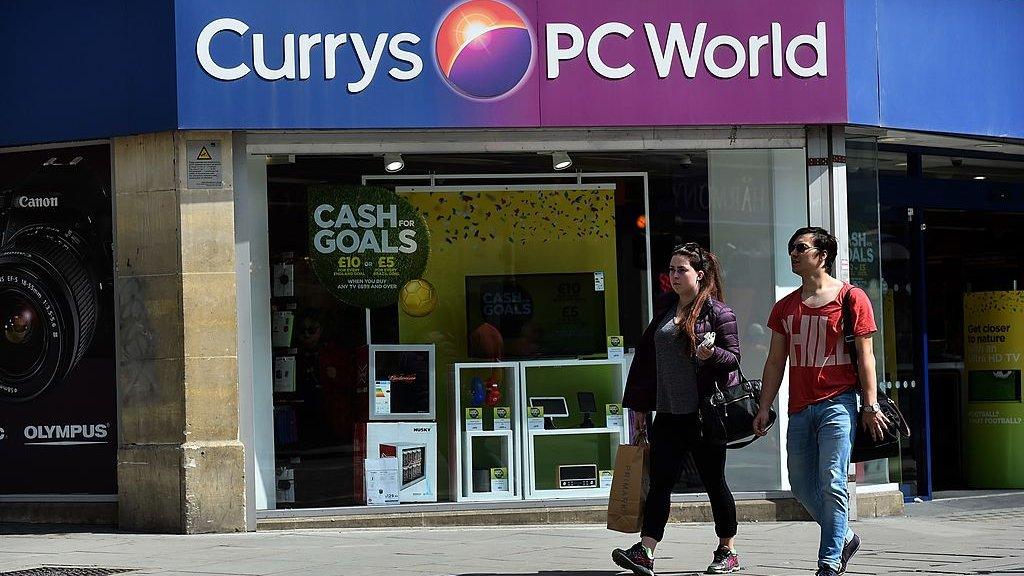Covid Christmas: Are gift cards wise or wasteful?
- Published

Allen, a father-of-three from Salford, saved all year to buy gift cards for his daughters.
"They love nothing more than going out to the Boxing Day sales with their vouchers," he says of the trio, aged 15, 14 and 12.
The problem is that the gift cards are for the Arcadia group - the embattled retailer that went into administration on Monday.
Gift card holders have now been told that they will only be valid for half of an order. So, to use their £100 card in full, each of the girls will need to spend £200 at one of Arcadia's stores, such as Topshop.
"I'd have to spend an extra £300 to get the value. At Christmas time you don't need the extra expense," Allen says.
On the brink
He describes the decision as "unacceptable". Legally, it is a grey area, but administrators are not obliged to accept gift cards.
That has prompted questions over the suitability of gift cards for Christmas, at a time when retailers are finding it tough and some are on the brink.
Further questions were asked when a website glitch at Currys PC World wiped hundreds of pounds off gift cards and left Black Friday bargain hunters without their shopping.
Providers say the fears are unfounded and that buying a gift card remains a better, and more thoughtful, Christmas present than stuffing a banknote or two into a card.
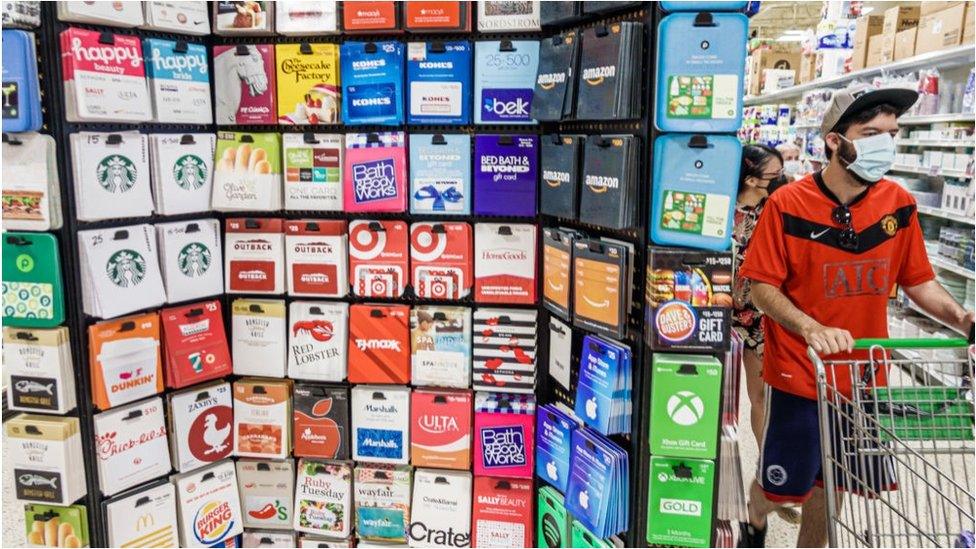
Gift cards in the US have a five-year minimum expiry
Gift cards are popular. The sector, which began with the first book token issued in 1932, has grown into a £7bn-a-year industry in the UK. Nowadays, they can be spent and topped up online as well as redeemed in stores.
Their attraction to buyers is obvious. Buying a card for a certain brand displays a personal touch. It avoids the awkward Christmas Day moment of a loved one pretending to love the jumper they intend to return and swap with something more of their style.
But cards come with associated risks. Most expire after two years. Gift cards in the US tend to have a five-year expiry date, prompting campaigns to introduce the same conditions over here.
Use them or lose them
While research suggests half are spent within a month, and 98.6% within a year, we still throw away tens of millions of pounds worth of out-of-date cards.
That is free money for the retailers, but the real attraction for them is that shoppers with gift cards tend to top them up with cash.
The UK Gift Card and Voucher Association says that two-thirds of people it surveyed said they spent more than the card value when they used it to buy something. An average value of gift card spending is £27.64, but typically an extra £18.55 is spent on top.
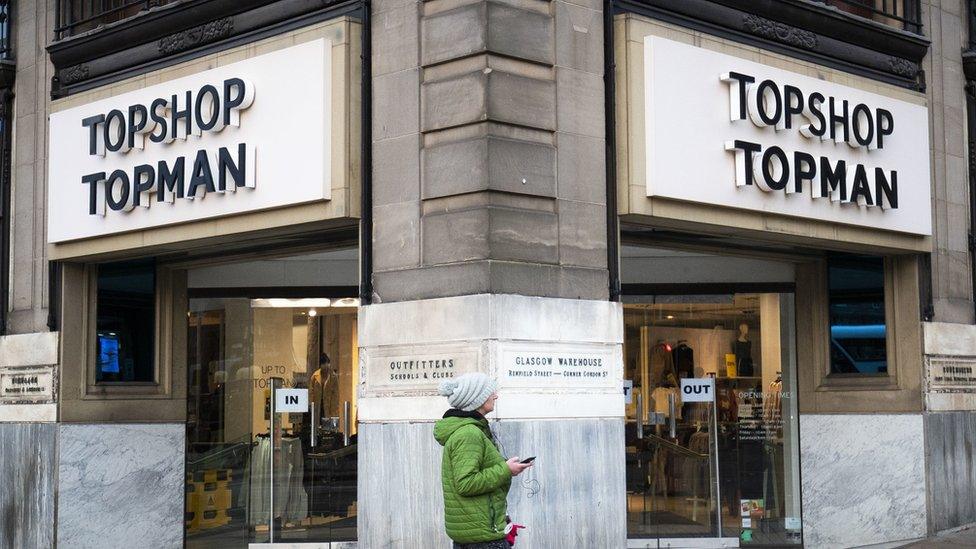
Gift cards at Topshop can only be used to pay for up to half the value of a purchase
The highly sought-after younger age groups also tend to return to the brands they shopped at with gift cards.
Some 31% of millennial or younger Generation Z shoppers have become a regular customer of a new brand or organisation after being given a gift card, the association says.
The association says that criticism of the sector is somewhat narrow-minded.
Its director general, Gail Cohen, says that support for vulnerable people during the coronavirus pandemic has been based around cards and vouchers.
Volunteers have used cards rather than cash as a secure way of fetching shopping for those shielding or self-isolating, while millions of pounds of free school meal vouchers were redeemed into supermarket gift cards when schools were closed.
Vouchers have also been used instead of refunds for those happy to delay experiences, rather than cancel them, during lockdown.
Yet the pandemic has had a disastrous impact on the High Street, and shoppers with gift cards are understandably nervous as they see big brands at serious risk of closing their doors.
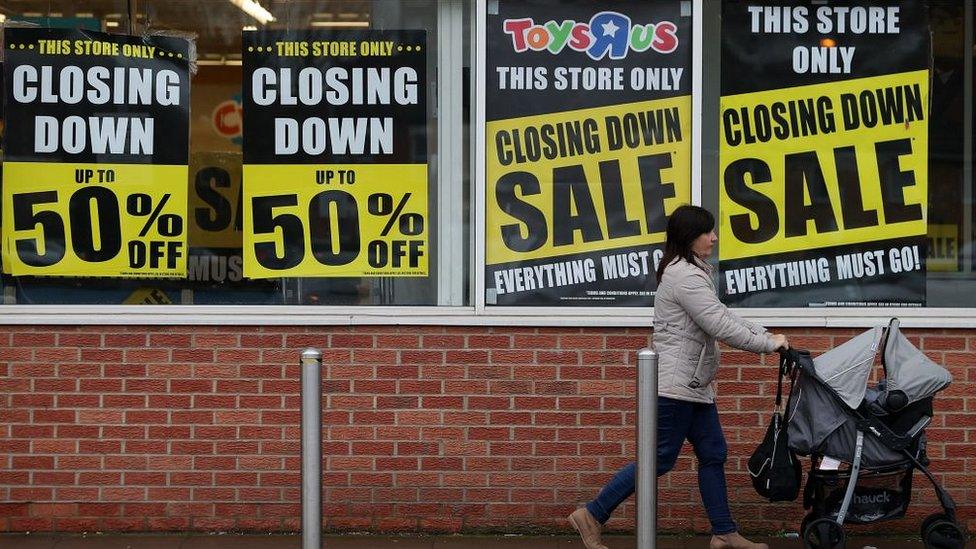
The closure of Toys R Us was accompanied with disappointment for cardholders
They have been stung before - but clearly never as hard as staff who have lost their jobs. Customers of House of Fraser were left in limbo for several months in 2018 after it went into administration and was bought by Mike Ashley's Sports Direct.
The collapse of High Street stores such as Toys R Us, Maplin and HMV in some cases left shoppers struggling to get refunds or having to accept that their gift cards were worthless.
The danger is that when a retailer shuts entirely, cardholders are near the back of a long list of creditors owed money. That means they would only receive a tiny fraction, or more likely nothing, from the sale of the collapsed business's assets.
There have been calls for cardholders to be moved up the list, but the priority scale has not been changed.
That is why advice to shoppers is relatively consistent - if you receive a gift card then do not hang around to spend it.
Alex Neill, chief executive of complaints service Resolver, says: "In the last year, some of the UK's biggest brands have vanished from the High Street and online for good. Shoppers with gift cards or vouchers should not delay if a firm is close to bankruptcy - spend them now or risk losing them for good."
Credit card backup
Ms Cohen, from the trade association, says if administrators accept gift cards it can make the business a more attractive proposition for potential investors.
"Administrators do know that gift cards encourage shoppers into stores and keeps the tills ringing," she says.

Some gift cards can be used in a selection of stores and may be a safer bet
Gift cards are there to be spent, not saved, she says. They do not gain interest, like savings, and givers would expect them to be used.
She points out that anyone worried about the health of specific retail businesses can buy gift cards that can be used in multiple stores.
If you are buying a gift card or voucher, one other tip from consumer experts is to do this using a credit card. This is because section 75 of the Consumer Credit Act can make credit card providers jointly liable for breaches of contract with a trader when you buy with a credit card.
But to qualify for a claim, your gift card has to be worth more than £100 and bought using a credit card.
Banks may also give refunds through the chargeback scheme for cards bought on a debit card, although that is at their discretion.
Either way, if you received it as a present, you will have to contact the giver to get them to chase the cash.
- Published3 December 2020
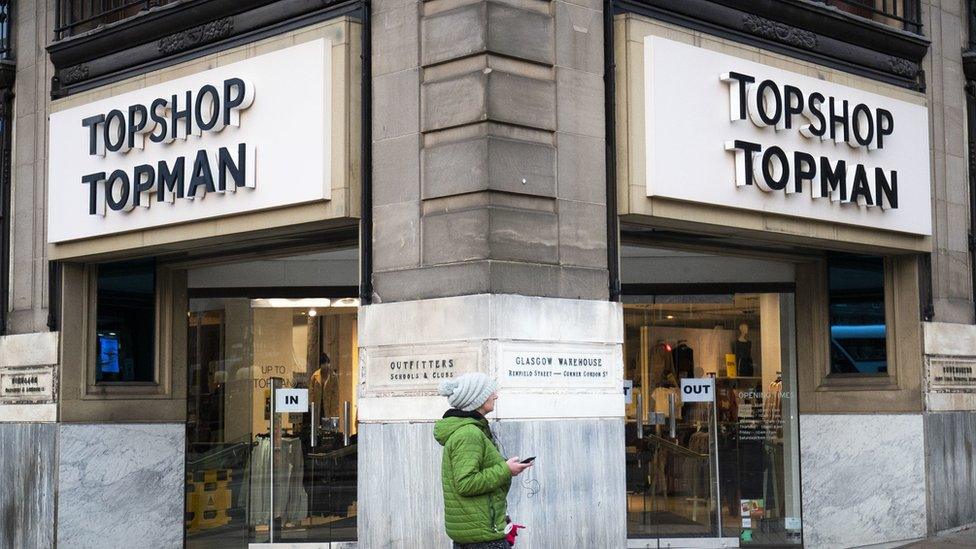
- Published30 November 2020
